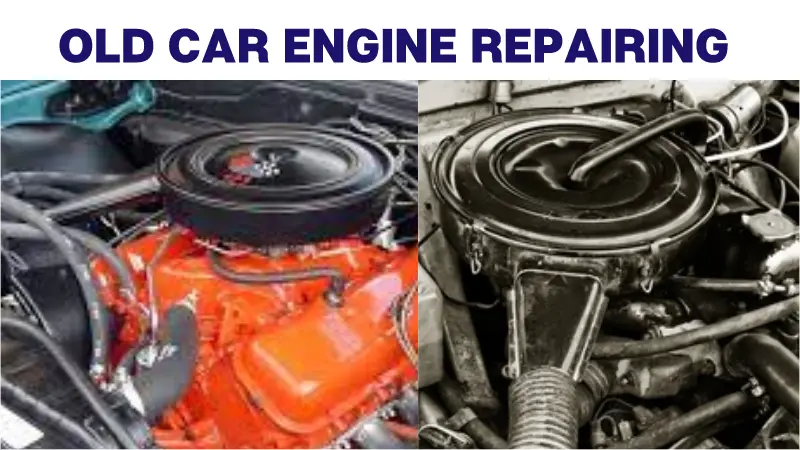The Importance of Regular Oil Changes: Maintaining Engine Health

Introduction
An engine needs to have its oil changed frequently to stay healthy and operate at its best. The overall usefulness and lifetime of a vehicle are greatly impacted by engine health. Drivers may maintain optimum performance and avoid expensive repairs by understanding the importance of oil changes.
Understanding Engine Oil
Engine oil serves as a vital lubricant for various engine components. It helps minimize excessive wear and tear by reducing friction between moving elements. Clean oil ensures that all components interact with one another smoothly and effectively, which is crucial for good engine operation. There are various types of engine oil, and each has suggested intervals for replacement based on elements including viscosity and additives.

Reasons for Oil Changes and Oil Breakdown
Engine oil naturally degrades over time through various processes. Oil quality degrades as a result of contaminants, heat, and oxidation. Dust and other contaminants can enter the engine and affect the oil’s ability to lubricate. The oil may lose its viscosity and cease to function as a sufficient lubricant due to heat and oxidation.
Engine Wear and Tear
Metal, dirt, and debris in the engine can abrasively affect its internal parts. Without routine oil changes, these particles build-up, increasing wear and friction. Drivers can reduce friction, lessen engine wear, and increase the lifespan of vital engine components by keeping their oil clean.
Sludge Formation
Oil degradation and contamination result in the formation of sludge, a thick, gel-like substance. Oil flow is impeded by sludge accumulation, which also makes it less effective at lubricating the engine. This may result in a decrease in engine performance, an increase in fuel usage, and possible long-term engine damage.it is a good tip for the maintenance of the engine.
5 Benefits of Regular Oil Changes: Improved Engine Performance
Engine power and efficiency are maintained by using clean oil. It guarantees the efficient operation of the engine’s parts, improving acceleration and responsiveness in general. However, unclean oil can hinder an engine’s operation, resulting in diminished power, poor fuel efficiency, and sluggishness.
Extended Engine Life
Preventing excessive engine component wear and tear with routine oil changes. Clean oil lowers friction and heat buildup, which can result in early engine failure, by providing the necessary lubrication. Proactively maintaining clean oil increases engine longevity and guards against pricey repairs or replacements.
Preventing Engine Damage
Engine component wear is considerably decreased by using clean oil. It creates a barrier of defense between moving parts, eliminating metal-on-metal contact and reducing wear and tear. In order to ensure optimal engine efficiency and prevent potential engine damage, routine oil changes also aid in the prevention of sludge buildup.
Enhanced Cooling and Heat Dissipation
The heat created during engine running must be dissipated, and engine oil is essential for this. Critical components are efficiently shielded from heat by clean oil, reducing overheating and consequent damage. Engine overheating, decreased performance, and even engine failure can result from inadequate cooling brought on by unclean oil.
Improved Fuel Efficiency
Clean oil decreases friction between engine parts, improving fuel economy. Because less energy is lost due to friction, the engine can run more effectively. Regular oil changes contribute to maintaining appropriate engine lubrication, improving fuel efficiency, and perhaps resulting in long-term cost savings.
Recommended Oil Change Intervals
According to general recommendations, engine oil should be changed every three to six months, or every 3,000 to 5,000 kilometers. Oil change intervals, however, might be influenced by particular conditions. Driving circumstances like a lot of stop-and-go traffic or towing large weights can hasten the deterioration of oil. Additionally, a vehicle’s age and make may call for more frequent oil changes. It is essential to refer to the owner’s manual for the vehicle and abide by the manufacturer’s suggested oil change intervals.
Signs of Dirty or Old Oil
It’s critical to be aware of the outward indications that an oil change is required. These warning indicators include oil that is black and gritty, a burning odor, an increase in engine noise, and reduced fuel economy. These symptoms can be recognized by routine oil checks and visual inspections, which can then trigger timely oil changes to maintain engine health.
DIY vs. Professional Oil Changes
Drivers have the choice of completing oil changes themselves or enlisting expert assistance. For individuals who have the requisite skills and equipment, performing their own oil changes can be convenient and cost-effective. Professional oil changes, however, have a number of benefits, such as knowledge, correct disposal of used oil, and full vehicle inspections. Professionals can also spot possible problems before they become serious, saving you money on future repairs.
Conclusion
The performance and health of an engine must be maintained with regular oil changes. Drivers can benefit from increased engine efficiency, prolonged engine life, and a decreased chance of engine damage by following the recommended oil change intervals. Preventive oil maintenance not only provides a smooth and reliable driving experience but also saves money over time. Keep in mind that your engine depends on clean oil, so take good care of it.
Frequently Asked Questions (FAQs)
How frequently should I replace the oil in my car?
Every 3,000 to 5,000 miles, or every three to six months, is the typical recommendation. However, for detailed advice, refer to your vehicle’s owner’s manual.
If I use synthetic oil, can I wait longer between oil changes?
Extended oil change intervals are usually possible with synthetic oil because it often has superior durability and performance. Nevertheless, it’s imperative to abide by the manufacturer’s instructions.
What happens if I don’t routinely replace my oil?
Regular oil changes can improve engine efficiency, minimize fuel consumption, and even prevent long-term damage to vital engine parts.
Can I do an oil change myself without a professional’s help?
DIY oil changes are possible if you have the right skills and equipment. Professional oil changes, however, have a number of advantages, including knowledge and extensive car checks.
What are the outward indications of soiled or aged oil?
Visible indicators of an oil change requirement include dark, sludge-like oil, a burning smell, increased engine noise, and lower fuel economy.











